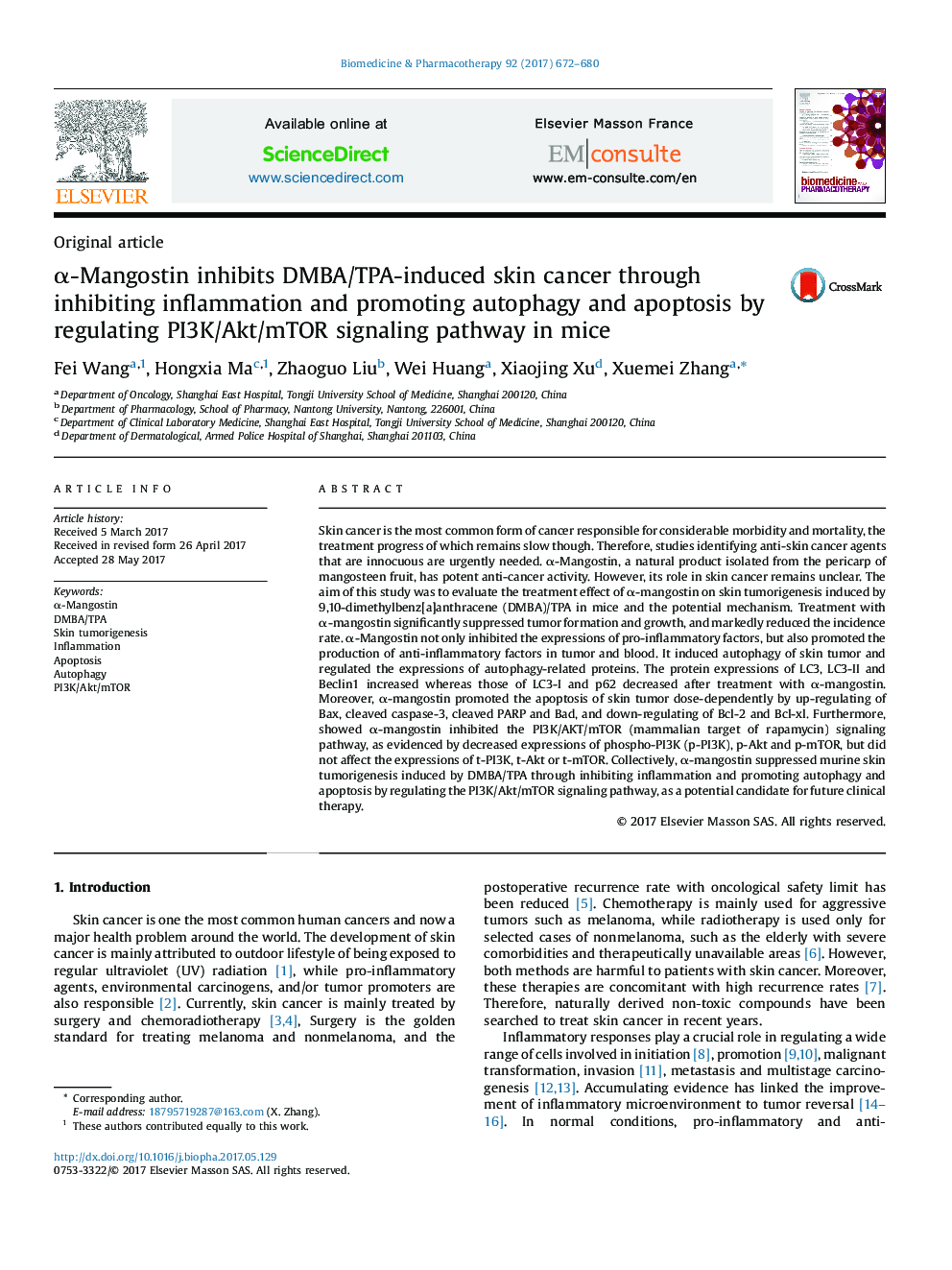| Article ID | Journal | Published Year | Pages | File Type |
|---|---|---|---|---|
| 5552779 | Biomedicine & Pharmacotherapy | 2017 | 9 Pages |
Skin cancer is the most common form of cancer responsible for considerable morbidity and mortality, the treatment progress of which remains slow though. Therefore, studies identifying anti-skin cancer agents that are innocuous are urgently needed. α-Mangostin, a natural product isolated from the pericarp of mangosteen fruit, has potent anti-cancer activity. However, its role in skin cancer remains unclear. The aim of this study was to evaluate the treatment effect of α-mangostin on skin tumorigenesis induced by 9,10-dimethylbenz[a]anthracene (DMBA)/TPA in mice and the potential mechanism. Treatment with α-mangostin significantly suppressed tumor formation and growth, and markedly reduced the incidence rate. α-Mangostin not only inhibited the expressions of pro-inflammatory factors, but also promoted the production of anti-inflammatory factors in tumor and blood. It induced autophagy of skin tumor and regulated the expressions of autophagy-related proteins. The protein expressions of LC3, LC3-II and Beclin1 increased whereas those of LC3-I and p62 decreased after treatment with α-mangostin. Moreover, α-mangostin promoted the apoptosis of skin tumor dose-dependently by up-regulating of Bax, cleaved caspase-3, cleaved PARP and Bad, and down-regulating of Bcl-2 and Bcl-xl. Furthermore, showed α-mangostin inhibited the PI3K/AKT/mTOR (mammalian target of rapamycin) signaling pathway, as evidenced by decreased expressions of phospho-PI3K (p-PI3K), p-Akt and p-mTOR, but did not affect the expressions of t-PI3K, t-Akt or t-mTOR. Collectively, α-mangostin suppressed murine skin tumorigenesis induced by DMBA/TPA through inhibiting inflammation and promoting autophagy and apoptosis by regulating the PI3K/Akt/mTOR signaling pathway, as a potential candidate for future clinical therapy.
